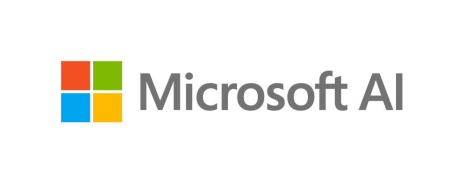Artificial intelligence (AI) is increasingly becoming part of our lives and transforming the ways we live and work. Today you're seeing it take center stage in Microsoft 365 thanks to Copilot, which works alongside you to unleash creativity and transform work.

Defined simply, AI is the simulation of human intelligence by machines, especially computers. AI can perform tasks that usually require human intelligence, such as visual perception, speech recognition, decision-making, and language translation.
Here are a few terms you might hear in conversations about AI:
-
Rule-based AI operates based on a set of predefined rules and logic. This type of AI is useful for solving mathematical equations or producing logical statements. It can also be used for analyzing large sets of fast-moving data to spot patterns and identify things like potential fraud.
-
Machine learning involves training a computer system to recognize patterns in data. Image and speech recognition are examples of machine learning.
-
Deep learning is a machine learning technique where layers of neural networks are used to process data and make decisions. A deep learning system looks at massive amounts of data and learns by spotting patterns. Deep learning AI is used for tasks such as image and speech recognition, natural language processing, and for making predictions about the future based on data. It’s a key part of the technology used in self-driving cars.
-
Natural language processing (NLP) enables computers to understand and interpret human language. This type of AI is one of the most common, as it’s used in chatbots, virtual assistants, and language translation software. NLP is what you're using when you interact with Copilot using plain English instructions.
-
Generative is another form of AI that’s becoming more popular, and it features heavily in how Copilot does what it does. It creates new written, visual, and auditory content by way of existing data or input by humans. ChatGPT from OpenAI is a generative AI, in fact that’s what the “G” in its name stands for.
AI in Microsoft 365
Over the coming months, you’ll notice new AI features being integrated into Microsoft 365 to support you at work and home. Our new AI-powered features can help you more quickly and creatively do the things you normally do.

You can already find AI in our products and services. Want to create some unique art? Try Microsoft Designer. With Designer you can create AI-generated images simply by using a plain English prompt. Learn more about Designer and DALL-E.
For an improved search experience, use the new AI-powered Bing and Edge browser. Not only will you see enhanced search results, but you’ll also be able to create content with Bing’s new chat experience, powered by AI.
Whether you’re composing a report, an email, or a post on LinkedIn, write with confidence when you use Microsoft Editor in Word. This AI-powered writing assistant helps you with spelling and grammar, clarity, and readability.
Copilot in Word, PowerPoint, Excel, OneNote, and Outlook will help you be more productive, get your documents and presentations started more quickly, and help you quickly glean insights from your data or emails. For more details, see Microsoft Copilot, your everyday AI companion.
Expect to see more AI integration coming soon to your Microsoft 365 apps, to help you create better content, faster.
Tip: Find out what's new with AI and Microsoft 365 apps and experiences in our blog.
Be aware of limitations
Like all transformative technologies, there are tasks that AI is not well suited for, so it’s important to be aware of the potential drawbacks.
AI-produced content and outputs may contain inaccuracies, biases, or sensitive materials because they were trained on information from the internet, as well as other sources. AI may not know about recent events yet, and struggles to understand and interpret sarcasm, irony, or humor. Please remember that it's not a person.
It's important that you review any content the AI generates for you to make sure it has accurately produced what you wanted.
You can help us improve our AI-powered features by experimenting with them and giving us your feedback. We are dedicated to using AI responsibly and helping you do the same. Our commitment to responsible AI is guided by a core set of principles, such as reliability and safety, privacy and security, inclusiveness, transparency, and accountability.
Privacy
Copilot and Microsoft 365 are built on Microsoft's comprehensive approach to security, compliance, and privacy.
For more information about privacy, see the following information:
-
If you’re using Microsoft 365 Copilot in your organization (with your work or school account), see Data, Privacy, and Security for Microsoft 365 Copilot.
-
If you're using Copilot in Microsoft 365 apps for home as part of Copilot Pro (with your personal Microsoft account), see Copilot in Microsoft 365 apps for home: your data and privacy.
Where can I learn more about Microsoft’s commitment to responsible AI?
Microsoft has been on a responsible AI journey since 2017, when we defined our principles and approach to ensuring this technology is used in a way that is driven by ethical principles that put people first. Read more about our responsible AI journey, the ethical principles that guide us, and the tooling and capabilities we’ve created to assure that we develop AI technology responsibly.
To learn more see Microsoft's commitment to responsible AI.
Note: This article was written by a person, with assistance from an AI.










